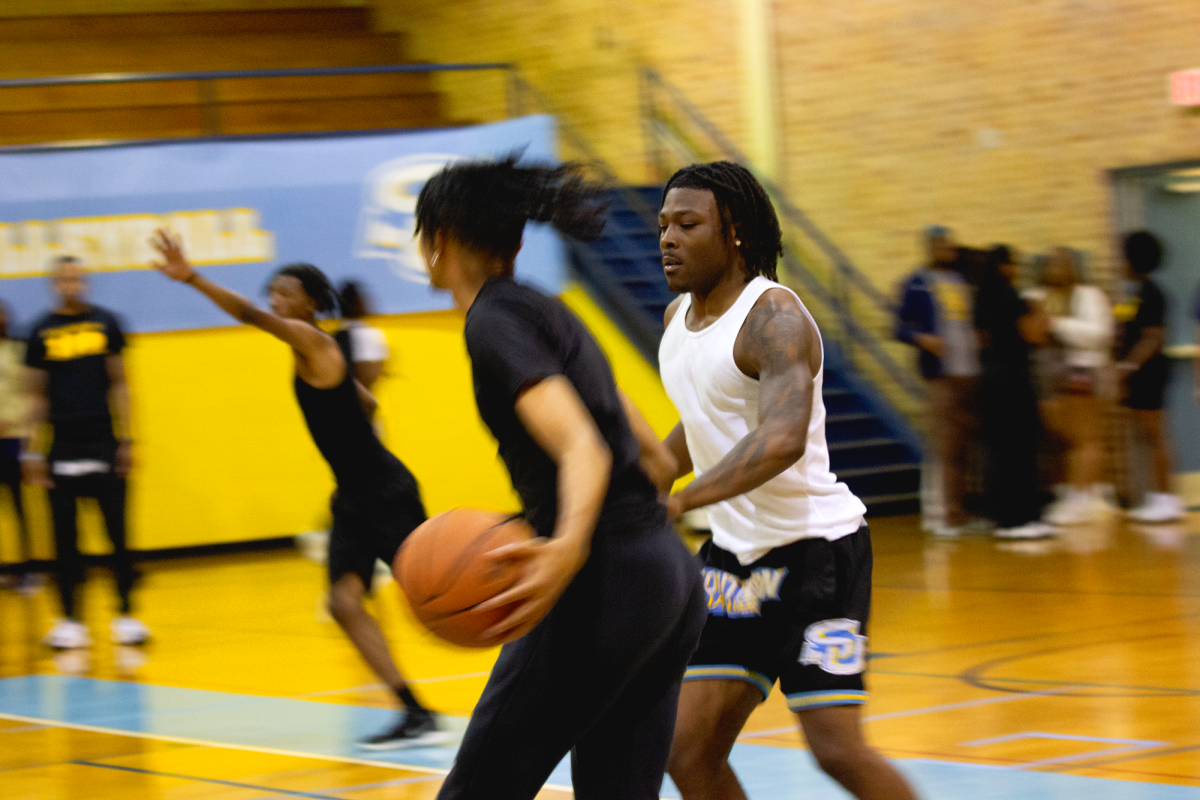Meningococcal disease, which is often referred to as meningitis, is an infection that may arise in two forms: bacterial and viral.
The sometimes fatal disease is common among college students; however, in people between the ages of 15 to 24, “70 to 80 percent of cases of meningococcal disease are potentially vaccine-preventable,” according to the “Meningococcal Disease: College Students at Risk” article on the Southern University website.
Students that attend Southern are required to get the vaccine.
“I think that it’s very important (vaccination) because it can be a fatal disease—it can cause death if untreated,” said Amber Kinyami, a junior nursing major from Baton Rouge.
“It’s extremely important for freshman students, especially students particularly that live on campus in close proximity with each other,” said Kinyami. “It’s not as much concern for people who live on their own, but it’s a major concern for students that dwell together.”
Shirley Wade, clinic administrator and nurse practitioner for the Baranco-Hill Student Health Center, referring to a law that took effect in Spring 2005, declared “it is a requirement if you are an incoming freshman or a transfer student coming in for the first time.”
There are approximately 100 to 125 cases of meningococcal disease on college campuses each year.
The article on Southern’s website also states that the American College Association (ACHA) recommends that other students under 25 years of age may elect to receive the vaccine in order reduce their risks of contraction.
Wade stated that she was not aware of any cases of Meningococcal bacterial infections so far on Southern’s campus.
“If there was an outbreak, depending on if it was the bacterial kind,” said Wade. “We would have to find out all the people that the student has come in contact with.”
According to the Center for Disease Control and Prevention (CDC), it is important to know the form of the disease because, “viral meningitis is generally less severe and resolves without specific treatment, while bacterial meningitis can be quite severe and may result in brain damage, hearing loss or learning disability.”
The CDC website also states that bacterial meningitis can be treated with antibiotics and some forms are contagious, although less so than the common cold or flu.
Wade also mentioned that if a student were diagnosed with the bacterial form, he or she would need to have their risks assessed.
The physicians at the Health Center located on Southern’s campus have procedures in place in preparation for any occurrences of the disease.
“The first thing we would do is call the emergency room, get them seen immediately and transfer them by ambulance,” said Wade.
According to Wade, a student from Louisiana State University recently died after contracting the bacterial infection.
Meningitis may be spread by coughing, kissing and sneezing. Some symptoms of meningitis include confusion, headache, high fever, nausea, sleepiness, stiff neck and vomiting.
Because some symptoms resemble those of the flu, meningitis may be difficult to diagnose. If you feel you may have contracted the disease, see a physician to ensure your situation is properly assessed.
For a more conclusive list of symptoms and other information regarding Meningococcal disease, please visit www.cdc.gov/meningitis.
`





